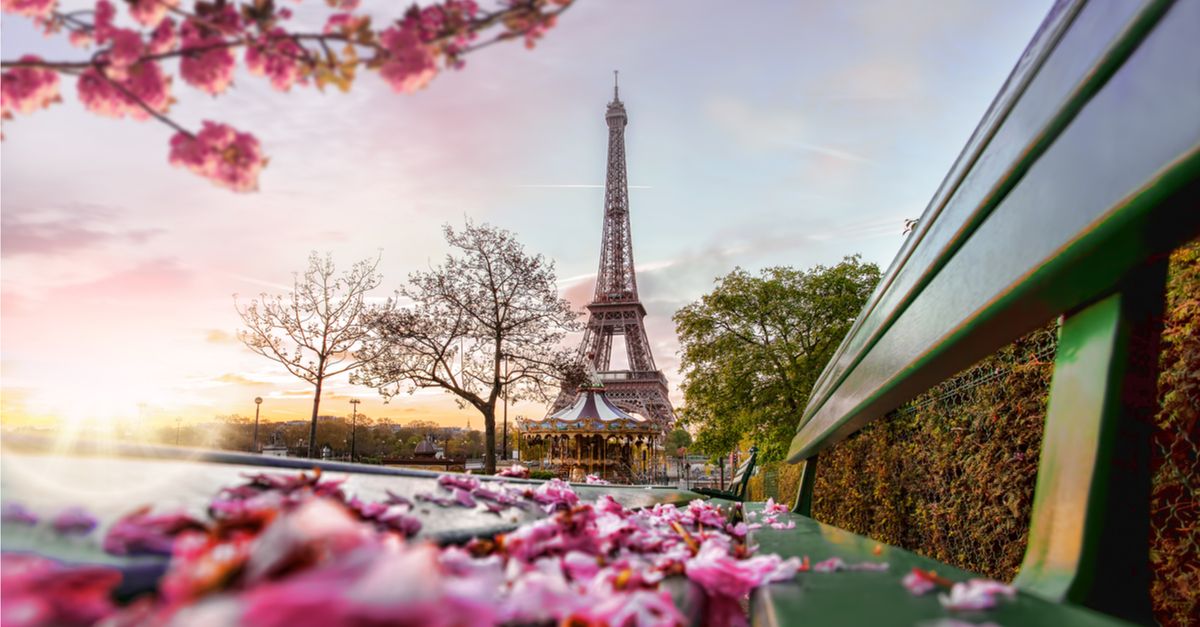Imagine: You fulfill a lifelong dream and at long last manage to make that romantic trip to Paris. During your weeklong stay, you photograph the Eiffel Tower from every angle and at nearly every hour of the day and night. When you get home, you naturally post your favorite photographs to social media.
A month or so later, you get hit with a cease-and-desist letter. Nighttime photographs of the Eiffel Tower are copyrighted and you could be fined or sued, you’re told.
How could this possibly be true?
As it turns out, it technically is true. Distributing photographs of the night-lit Eiffel Tower is a violation of the artist’s copyright.
To clarify, the Eiffel Tower itself, constructed in 1889, is in the public domain. Tourists can click away all they want during the daytime. However, the light show, added in 1985, is considered an artistic display and is indeed protected by copyright. But because the lighting is attached to the Eiffel Tower -- and since any photographs of the Eiffel Tower taken at night aren’t likely to be terribly interesting without the lights, the practical effect is that nighttime images of the Eiffel Tower are a violation of the artist’s copyright under French law.
But let’s backtrack a bit. France is a member of the European Union. According to the EU’s 2001 Copyright Directive, Article 5, photographs of architectural works in public spaces can be taken free of charge. Thus, taking pictures of public buildings are permissible, and those photographs can be published or distributed without prior permission in most European countries. However, the EU directive is optional. France opted out of including the directive into its national laws. The organization that manages the Eiffel Tower, the Société d'Exploitation de la Tour Eiffel, considers the lighting to be an artistic work that is separate from the tower itself. As such, usage of any nighttime images of the Tower requires prior permission from the Société.
Under European copyright law, people cannot sell photographs of copyrighted works, upload them to stock photo websites, publish them in magazines, or – what affects most tourists – post them to social media.
While most tourists visiting Paris would expect to photograph a world-famous landmark like the Eiffel Tower, and would consider it fairly ridiculous to think that an attached lighting display would somehow be considered separate and apart from the Tower itself, that’s exactly what the Société maintains. According to a 2014 article in the Art Law Journal: "Whether the lighting scheme is a separate protectable artistic work is debatable, but only the courts can make that determination."
The article implies that French courts have never ruled on the issue.
So what is a humble tourist to do? Despite the Société assertion that the lighting display is under copyright protection, there is a difference between owning a copyright and actually enforcing it.
Imagine the public relations nightmare that would ensue if the Société actually started enforcing the copyright. And then there is the reality of seriously attempting to enforce it. The Société would actually have to hunt down each of the 25 million or more photographers who have posted nighttime images of the Eiffel Tower to the internet, figure out their addresses, and mail them cease-and-desist letters. The cost of the research time and postage would be substantial in and of itself. If the photographers ignored the cease-and-desist letters, the Société would then have to follow up with a lawsuit, with all the costs associated with that. And what would they win? What has the artist lost by all those tourists posting their nighttime selfies with the brightly-lit Eiffel Tower in the background? There’s a limited economic value to such photographs. The costs of such lawsuits would likely not cover any gains.
Art Law Journal concludes that posting the average tourist photo to social media is likely not going to be a problem. Rather, where photographers should ensure they obtain prior permission is if they are planning to use their photographs for commercial uses, such as in a magazine, on a movie poster, or on product packaging.
Although the lighting display may technically be under copyright, the Société does not seem to be making the prohibition very prominent. A recent review of the Eiffel Tower’s official website does not show warnings against publishing nighttime photographs in any obvious place. Various tabs on the website, such as “Visiting the Eiffel Tower”, “The Magic of the Eiffel Tower,” and “Eiffel Tower Gallery/Pictures” all lack any such warning. In fact, one section of the website encourages tourists to “Submit Your Photo. The best ones could be published on our site.”
It is only in the FAQ section (which in itself is fairly difficult to find) where visitors can read a statement that “The views from the Eiffel Tower are rights-free. Permission and rights must be obtained from the “Société d’Exploitation de la Tour Eiffel” (the operating company, or SETE) for the publication of photographs of the illuminated Eiffel Tower.”
Enforcing copyright protection against millions of tourists is impractical, and because the Eiffel Tower’s own website appears to downplay the prohibition against publishing personal photographs of the illuminated Eiffel Tower on social media, we’ll concur with Art Law Journal and conclude that the average tourist is likely to come to no legal grief if he/she posts a nighttime photo of La Tour Eiffel on Facebook. However, photographs taken for future commercial use should certainly request prior permission from the Société and pay the appropriate licensing fee.
Since Snopes.com is a commercial website, we are using a daytime photo of the Eiffel Tower to illustrate this article.

